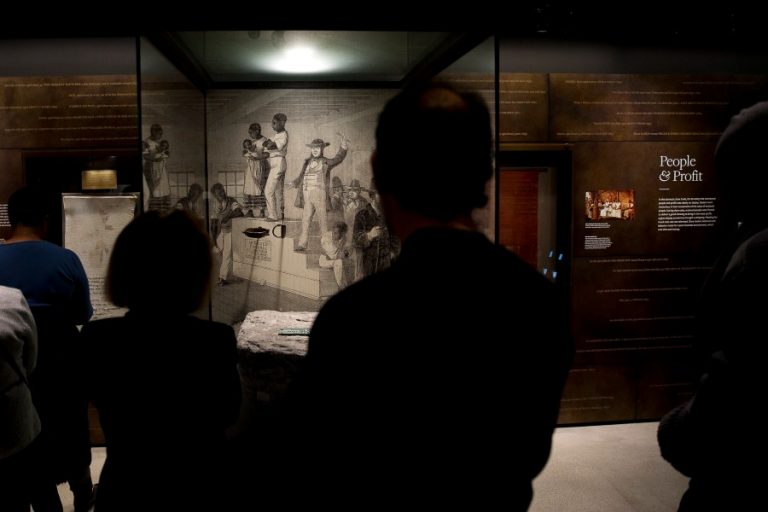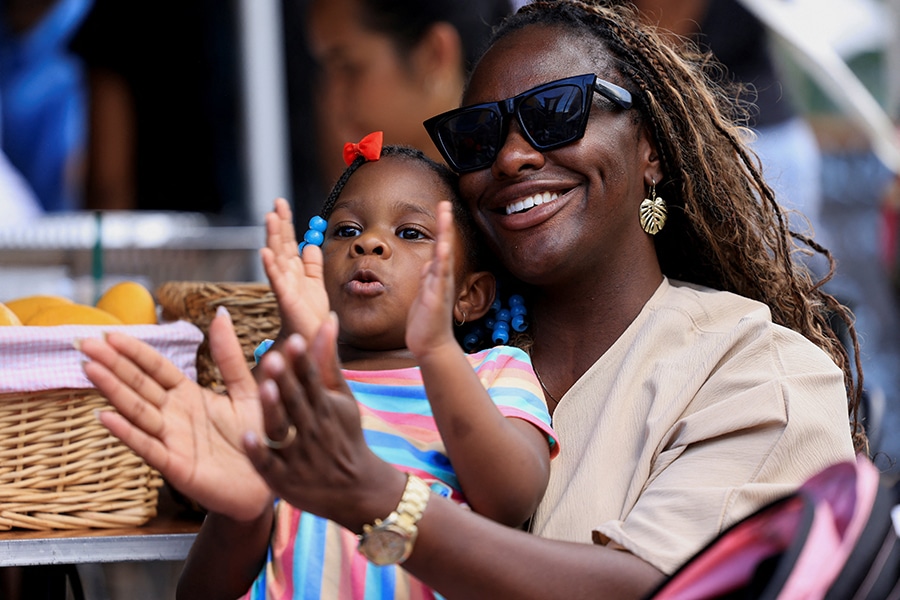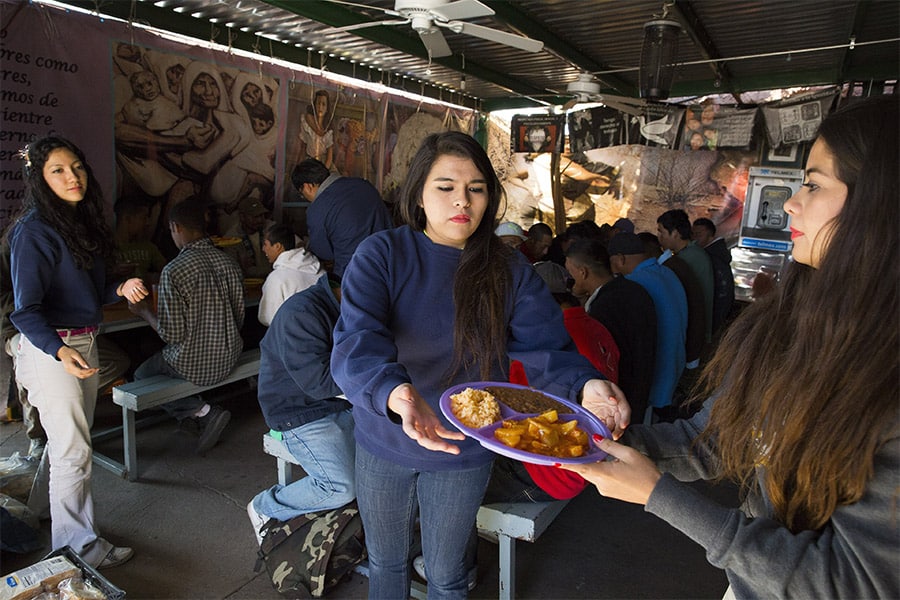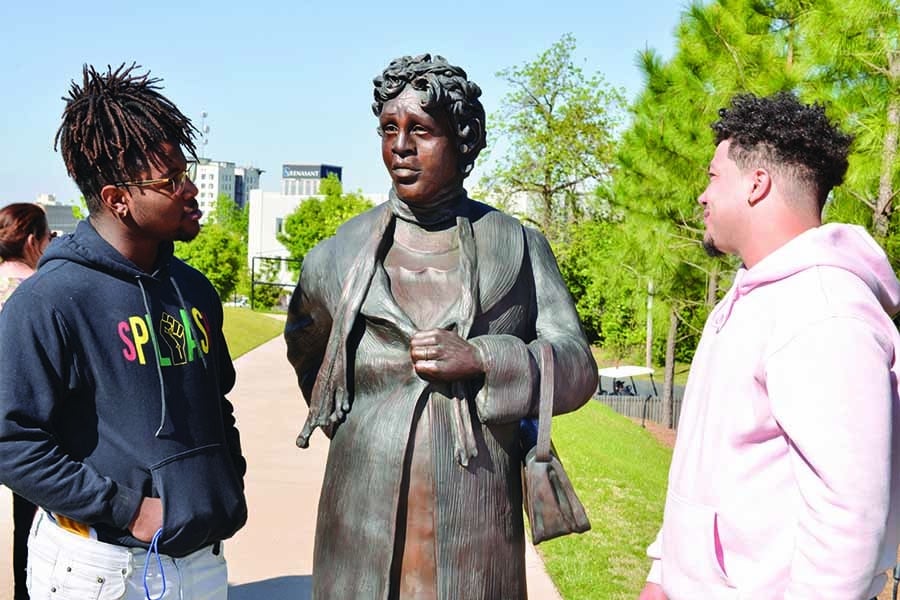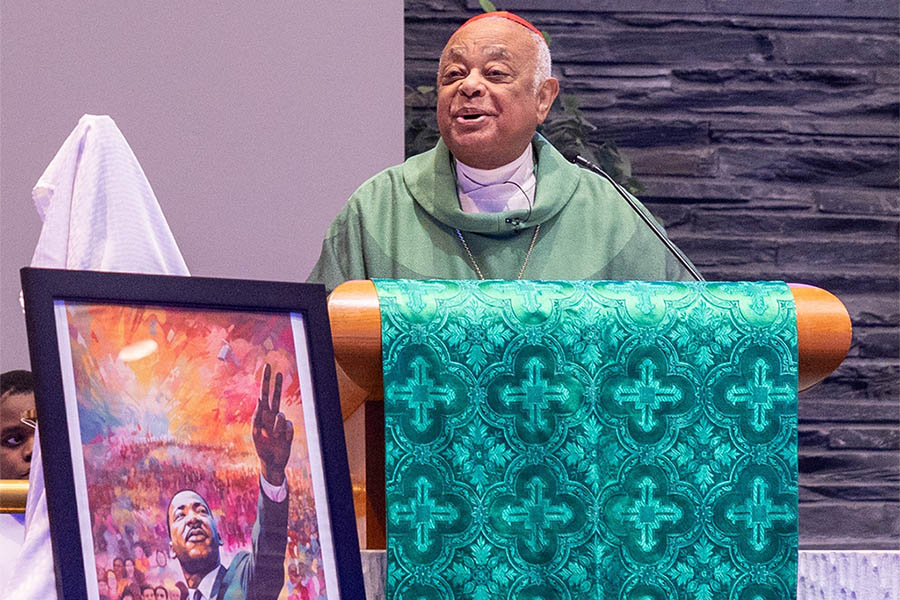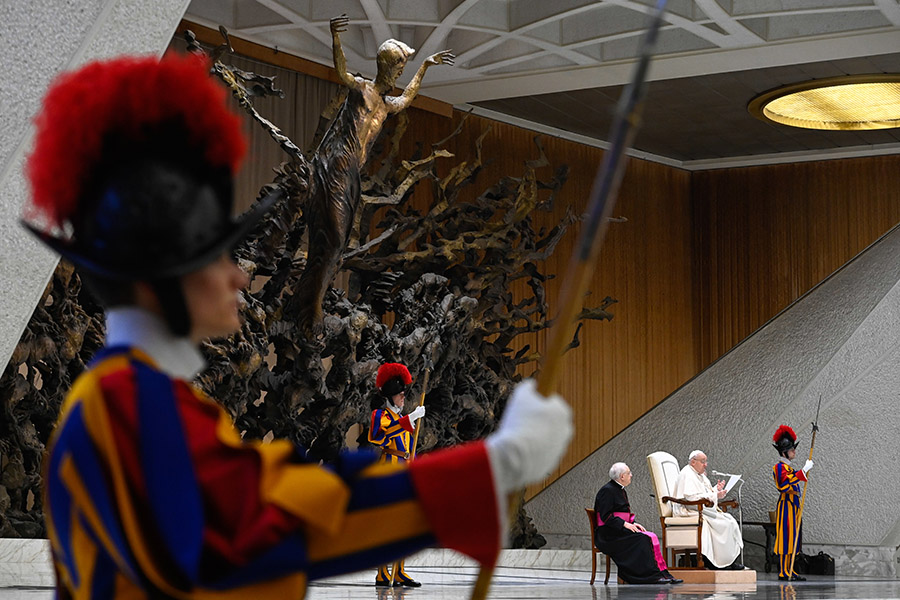WASHINGTON (CNS) — The work of Georgetown University and the Jesuits in reckoning with the history of owning and selling enslaved people may hold lessons for the rest of the Catholic Church and American society, said several panelists at an April 29 discussion at the university.
Joseph M. Stewart, the acting president of the Descendants Truth & Reconciliation Foundation, was adamant that addressing the U.S. history of slavery and its continuing implications must focus on looking ahead more than on continuing to deconstruct the past.
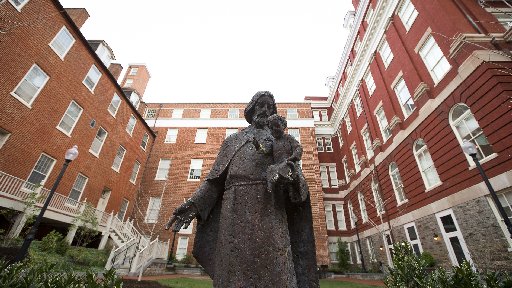
Stewart is a descendant of Isaac Hawkins, whose name was at the top of the bill of sale for the 272 enslaved men, women and children sold by the Jesuits in 1838 to plantations in Louisiana.
He spoke in an online program hosted by Georgetown’s Initiative on Catholic Social Thought and Public Life called, “Owning Slavery, Pursuing Justice, Seeking Reconciliation.”
“We’re not going to change and mitigate the impact of slavery until we start dealing with the hearts of men instead of the intellectualizing and legal approach,” Stewart said.
“You get your hands around one part of it and it pops out another. It’s popping out now in voter suppression and insurrection… We’ve got to change that because this democracy is crumbling under the pressure of racism and the mutating legacy of slavery. We’ve got to put it behind us.”
He gave Georgetown credit for its outreach to the descendants of the 272 enslaved people and its ongoing research and lauded the Jesuits for their collaboration with those descendants in acknowledging the past and continuing legacy of the nation’s history of slavery.
Georgetown’s institutional efforts have included renaming campus buildings that previously honored people with significant roles in the sale of enslaved people. Although Stewart appreciates this action, he knows it is not enough.
He suggests making changes by “dealing with the roots of slavery that continues to mutate — in every way you look in this country — because people are trying to hold onto the advantages and privileges” that date back to slavery and that continue to benefit non-Blacks.
The Jesuits’ history of owning enslaved people was broadly acknowledged in 2015 as Georgetown University President John DeGioia established a Working Group on Slavery, Memory and Reconciliation. The working group’s efforts led to a formal apology from the Jesuits and the creation of the Descendants Truth & Reconciliation Foundation, announced in March as a partnership formed by the Jesuits and the GU272 Association.
The Jesuit order pledged to raise $100 million for the foundation’s work, which will support educational opportunities and scholarships from early childhood education to higher education for descendants of the 272 enslaved men, women and children.
The foundation will also support community-based, grassroots and national programs that advance racial healing and transformation throughout the United States. The enslaved people once sold by Maryland’s Jesuits to benefit Georgetown University now have an estimated 10,000 descendants.
Jesuit Father Timothy Kesicki, president of the Jesuit Conference of Canada and the United States, who has helped lead the religious order’s contemporary responses to slavery, noted that for hundreds of years the Jesuits have known the history of slave-owning. Detailed records were kept, and it was discussed and taught to students, he said.
But until recently it was not considered through any lens other than that of the religious order, he said. Through the reconciliation group, the Jesuits “came face to face” with descendants of Jesuit slaveholding, he said. “Suddenly we didn’t know the whole story.”
After a lot of “raw truth-telling and tears, absorbing the pain and the shame of this history,” the working group focused on moving forward, Father Kesicki said.
Kim Mazyck, the senior manager for engagement and educational outreach in the social policy department at Catholic Charities USA, echoed the call to move forward by pointing to the New Testament parable of the Good Samaritan.
“We can focus on who beat up this man and dumped him by the side of the road, or we can do what the Good Samaritan did, (who) picks him up, takes care of him and moves forward,” Mazyck said. She said Georgetown is trying to do that with the reconciliation project, but also with a program for prisoners.”
“In the story of the good Samaritan, we never hear who beat this man up,” she said. “We only hear about the man who picked him up. We have to be those people.”
Another of the descendants, Cheryllyn Branche, president of the GU272 Descendants Association, told of getting a phone call from someone who told her about her that she descended from a family sold by the Jesuits in 1838.
While she previously knew she descended from people who were enslaved, Branche said she was given a litany of details that she’d never heard. “I get breathless when I even say it because it’s the truth. I felt I had been given a truth that was never shared with me before.”
That was the beginning of a process for her to decide what to do with the information.
“We all deal with truth very differently, what we process and what we decide to do as a result,” she said. In discussions with her pastor, she focused on his question “what are you going to do about it?” and has plunged into the work of the descendants’ association.
Joseph A. Ferrara, vice president and chief of staff to Georgetown’s president, said he has learned from the university’s efforts on this issue that “truth-telling, reconciliation, healing and transformation has to occur at a personal level, each of us understanding our common humanity.”
“We’re dealing with massive historical legacy of pain, oppression, killings,” he said. Anyone who becomes immersed in that history comes out numb, he added, which makes it daunting to consider a way forward.
Stewart said taking action is essential. “We can stand around and argue for another 200 years or we can act.”
The efforts by the Jesuits and the foundation have started to get somewhere, he said, adding that Catholics and others are also being called to get involved.
“If you can say the Apostles Creed, you cannot be satisfied with what’s happening in God’s human family,” Stewart said. “If you can be satisfied with what’s happening, you’re lying to God.”
Also see
Copyright © 2021 Catholic News Service/U.S. Conference of Catholic Bishops

